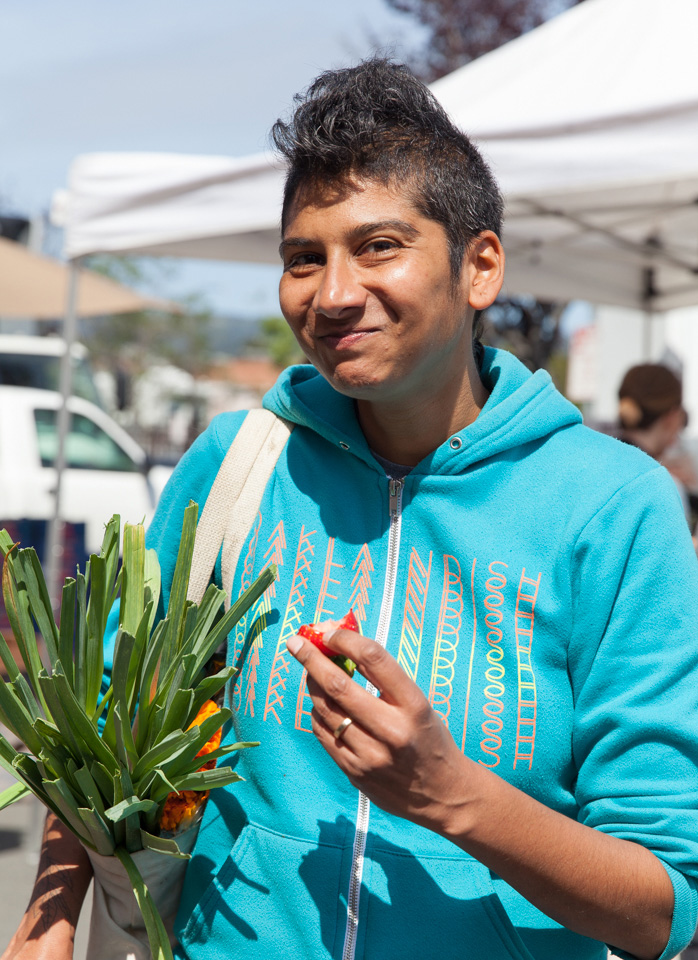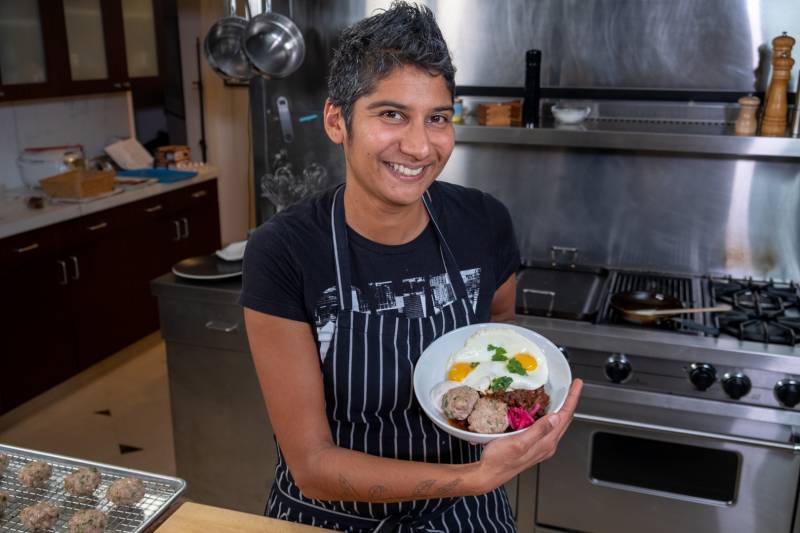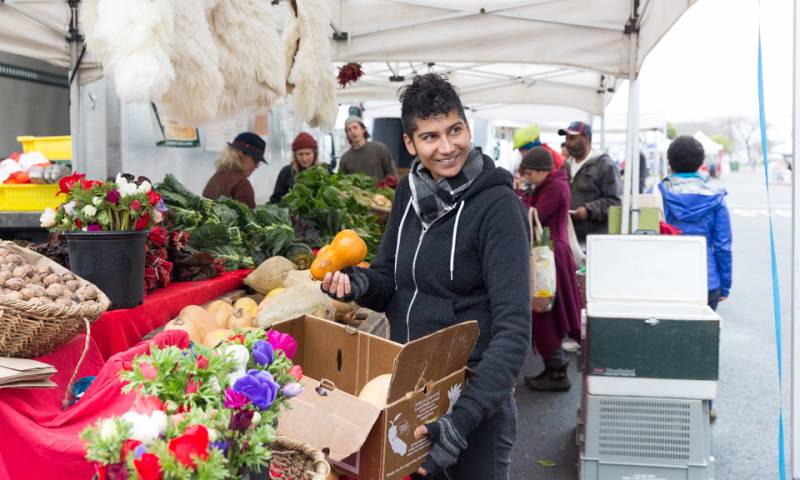But there’s a lot of people for whom that is not at all part of their world. The [podcast] listener is like that gap: They’re leaving the restaurant, they look over and they see these chefs all hanging out talking to each other, and they’re like, “Oh, I wonder what they’re talking about?” But then they need to get in their Uber. [laughs]
Why do you feel like it’s important to have this platform as a queer, brown, and immigrant chef?
I think it’s great that in this last year, a lot of the successful food podcasters out there—who are mostly white—have prioritized interviewing more BIPOC folks. But they’re still the ones in positions of power. Aside from a few that are willing to take risks, the white hosts generally pick people of color that are “safe,” that are not going to threaten them or make them feel uncomfortable. Now they’re like, “We’re going to talk about cultural appropriation, but we’re going to bring on guests that don’t have a strong opinion about the issue.” And then they get patted on the back for talking about a controversial issue and for adding so much diversity to their programming.
To me, that just feels like so little so late. It’s still never going to be the same conversation. The conversation is still being managed by the white gaze. We’re taking the position of power and ownership and saying, “This is how I want to tell the story. This is what we’re going to focus on.”

Can you give any specific example of how your identity and background change the dynamic between you and guests?
I’m sure Asha [Gomez] has been interviewed a gazillion times, but I don’t know how often she’s been interviewed by another Indian woman who’s also a chef. [During that interview], we’re talking music and she says it might seem strange that she grew up listening to Led Zeppelin [as an Indian person raised in Kerala, India]. And I was like, what’s so strange about that? I was right there with her. And I was able to relate it to people telling me we should play more Bollywood music at Juhu, and being like, “Nah, dude.”
With [this week’s guest, Nick Cho], we talked about how our fathers are both physicians and we were both immigrants to this country. I think we both went very different paths than our parents had expectations of us going, so we were able to bond about that and find common ground.
My entire roster for the first season is all BIPOC folks, and most of them are immigrants. So, it’s just like any other thing: If it were tennis players talking to tennis players, the conversation is going to be different if it’s Serena talking to Sharapova versus Serena and Naomi Osaka. You know what I mean?
I reached a point a while back in my career where I would be like, “Hey, this thing should exist”—and if no one else is going to do it, maybe I just have to be the one to do it, whether that’s making California-Indian street food or doing this podcast.
During your interview with Asha Gomez, she talks about how unsustainable the traditional restaurant model was for her—and how she hated every moment of running her first restaurant even though it was receiving a lot of praise. Did those sentiments resonate with you as a former restaurant chef? Do you think you’ll ever open a brick-and-mortar restaurant again?
I didn’t hate every moment of it [laughs]. I’m a restaurant person. I went to culinary school and worked in a whole lot of restaurants, and I bought into the whole thing. Throw me on a line right now and make me expedite, and I’d be like, “This is fucking great!”
A lot of what we’ve experienced in the past year during COVID is seeing how unsustainable the restaurant industry is in its current state. When I first closed [Juhu Beach Club in January of 2018], I was really focused on opening a new Juhu that’s just a little fancier, with a little more space so we can do more with the menu—like, I wanted a proper dessert program. The problem, ultimately, was I was not going to do it in a way that was not going to be sustainable for me and anyone on staff.
I don’t know that I need to keep scratching that itch, or that I have anything to prove anymore. I’m not saying I wouldn’t do anything again, restaurant wise. I suppose I just don’t necessarily feel as much like I have anything to prove. I think if I do something, it’s going to be something that’s somehow more collectively owned. It’s going to be focused on having other social missions beyond just, “Look at me and this delicious food.”
I love cooking for people. But I don’t need to do it in the sense of, like, “This is my fancy restaurant. Come spend money here so that I can make money.” I need more than that.





